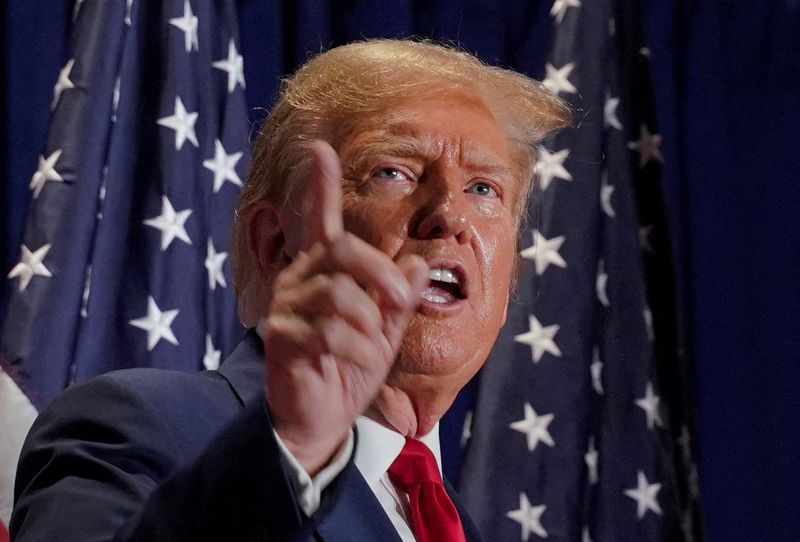Investing.com’s stocks of the week
NEW YORK (Reuters) -New York state Attorney General Letitia James this month made an official notification of the civil fraud court award against Donald Trump in suburban Westchester County, where he owns property, according to county clerk records, in what could be a preliminary step toward seizures in the case.
The former U.S. president faces a Monday deadline to post a bond covering a $454 million civil judgment against him for overstating his net worth and the value of his real estate properties to dupe investors and lenders, or risk state authorities seizing his assets while he appeals.
Westchester, just north of New York City, is home to the Trump Organization's Seven Springs estate, as well as the Trump National Golf Course Westchester.
James registered the judgments in Westchester against Trump, the Trump Organization and two of his adult children on March 6, according to county records that reflected the official notification.
The registrations do not necessarily mean that seizures of the Westchester properties are imminent. But they are a procedural step that would be necessary should James seek to seize them in the future.
Trump's lawyers have previously said in court filings that 30 surety companies that would have guaranteed the bond have turned him down. Bonds are typically backed up with a mix of cash and assets equal to 110% of the total judgment and are returned if the defendant prevails on appeal.
Trump has said on social media that he could be forced to sell assets at potentially "fire sale prices" to post bond in the case. He is the Republican candidate challenging Democratic President Joe Biden in the Nov. 5 U.S. election.
Trump's lawyers and a spokesperson for James' office did not immediately respond to requests for comment.
Before a three-month, non-jury trial in Manhattan, Justice Arthur Engoron found that Trump had engaged in fraud by overvaluing properties including Seven Springs, as well as better-known properties such as his Mar-a-Lago estate in Florida and his penthouse apartment in Manhattan's Trump Tower.
Engoron found that Trump fraudulently inflated the value of Seven Springs by more than 400% in 2014, when he said in his financial statement it was worth $261 million despite a professional appraisal valuing it at or below $30 million.
Trump continues having to balance raising money for both his campaign and his legal expenses - costs that are likely to rise as he faces four upcoming criminal trials. Trump has pleaded not guilty in the criminal cases and has denied wrongdoing in all of the cases.
